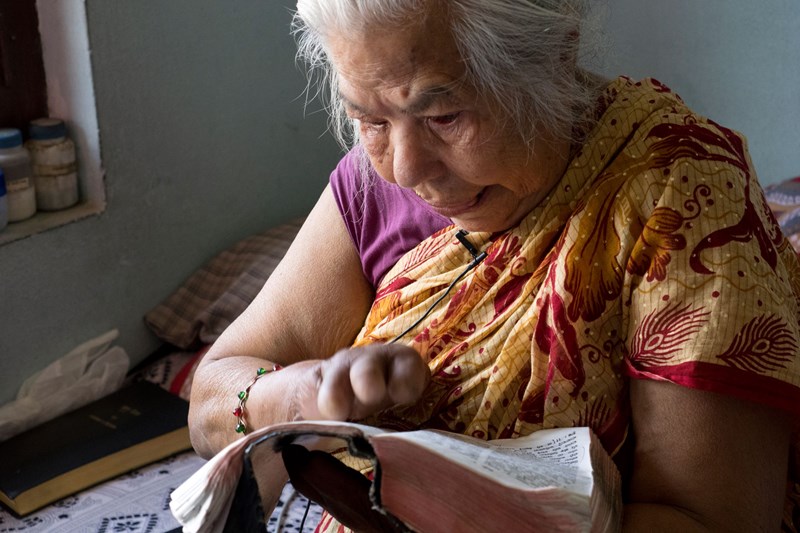The head of a Christian mission serving the people of Nepal has called for prayer for Christians in Nepal after an Australian woman was deported from the country for spreading Christianity.
Ben Thurley, CEO of International Nepal Fellowship (INF) Australia, says the deportation of Sydney woman Katie Rachel Graham for doing door-to-door evangelism in a small town near the border with India, highlights a clampdown on Christian activity in the country, but also the need for expatriates to understand and abide by their status as guests in Nepal.
According to a report by the ABC, the director of Nepal’s Immigration Department, Bishnu Hari Upadhyay, said Graham was on a student visa and “breached our immigration act, engaged in conversions, which is strictly prohibited under our laws.”
Thurley told Eternity there has been a law restricting the ability of groups to proselytise for a long time, but since a redrafting of the law in August, its implementation had been tighter and more restrictive.
“There are reasons for concern and for prayer because, on the whole, the law has got tougher in its drafting and the avenues for tough enforcement of it are more open than they might have been in the past.”
“The Nepali church has grown but it’s really grown through people’s lives being changed through faith in Jesus and then communicating that to their friends.” – former INF field worker
Eternity also spoke to a former INF field worker to Nepal who visited the country twice this year. He said it was “intriguing this response has come at a time of significant church growth in Nepal and which has really been driven by Nepali people.
“The Nepali church has grown but it’s really grown through people’s lives being changed through faith in Jesus and then communicating that to their friends – and the church is an example to us of how people really invest in their faith,” he says.
Thurley notes that while it is illegal to convince someone to convert, freedom of religion is enshrined in the nation’s Constitution, so it could be seen as a breach of religious freedom to deny someone the chance to commit to a particular religion.
“Arguably she breached that particular anti-conversion law of compelling or persuading or convincing others or engaging in an activity with the purpose of doing that,” he says.
“The issue for a Westerner doing it, though, also relates to somebody’s visa conditions and if they’ve breached that law or are accused of breaching that law, they will have breached the conditions under which they’re in Nepal.”
Thurley says the Nepali church is watching to see how the law will be implemented at a local level.
“The law has got tougher in its drafting and the avenues for tough enforcement of it are more open than they might have been in the past.” – Ben Thurley
“If churches are still able to celebrate Christmas and Easter in public, have people come along to church, be baptised within the church community, then some groups are feeling like that’s not necessarily a huge imposition on their freedom,” he says.
“But if it comes down to churches and church leaders being imprisoned or accused of converting others because they share with their neighbour that they’re Christian, or why they’re doing certain things, then that’s obviously a big problem.”
“It hasn’t yet, although there are reasons for concern and for prayer because on the whole the law has got tougher in its drafting and the avenues for tough enforcement of it are more open than they might have been in the past.”
Thurley says the fact that four Nepali locals were arrested with Graham highlights the tightrope that Christian expats have to walk in the country.
“The Nepalis who were also doing door-to-door evangelism might well have already found themselves targeted because of that activity. But add an expat going door to door while trying to persuade people to convert and that’s much more likely to draw the attention of people who want to clamp down on that type of activity.”
Thurley says INF and other sending organisations send Christian field workers to Nepal “to love and serve the people of Nepal and primarily that is through their professional contribution, whether that’s health or community development or whatever it happens to be.”
Thurley comments: “Our expat staff work within local laws and with the permission of Nepal’s government to serve poor and disadvantaged individuals and communities.
“The other thing to say is INF supports and the Constitution of Nepal supports freedom of religion for all Nepalis, Christians, Hindus, Buddhists, Muslims … There are minority religions in Nepal, all of whose religious freedoms are protected according to international human rights law and the constitution of Nepal. We hope that the laws and the implementation of the laws of Nepal affirm the right of every person to freely practise their religions and their religious convictions.”
Pray
Some prayer points to help
Please pray for protection on the growing Nepali church.


